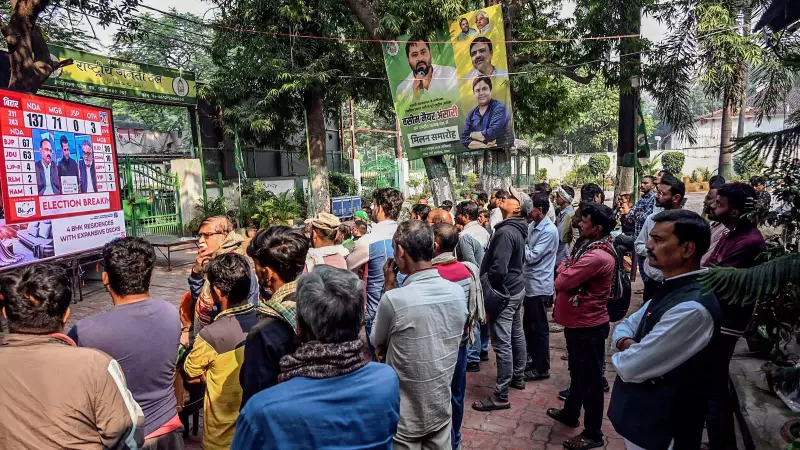
RJD Faces Electoral Earthquake in Bihar
The Rashtriya Janata Dal (RJD) led by Tejashwi Yadav suffered a catastrophic defeat in the Bihar Assembly elections, with the scale of loss revealing a dramatic reversal of fortunes from the 2020 polls. The ruling National Democratic Alliance (NDA) secured a landslide victory that included numerous constituencies where the RJD had previously established comfortable strongholds.
Devastating Numbers Tell the Story
Out of the 75 seats the RJD had won in the 2020 Assembly elections, the party decided to recontest 73 constituencies in the current election. The results show the party is set to lose 55 of these 73 seats, representing a staggering collapse of their previous electoral gains.
The magnitude of the defeat becomes even more apparent when examining the margins from the previous election. The RJD lost 31 seats where it had secured victory by a margin of at least 10,000 votes in 2020. Even more telling, the party lost 4 constituencies where it had previously commanded more than 50% of the vote share.
Vote Share Analysis Reveals Deeper Problems
Despite recording an increase in vote share in some constituencies, the RJD still faced defeat in 15 seats where its vote percentage actually improved from 2020. The party also lost 24 seats despite securing more than 40% of the vote share, indicating intense competition and strategic voting patterns working against them.
In a particularly dramatic example of the party's declining appeal, the RJD experienced its highest vote share decline of 21.71 percentage points in Gobindpur constituency located in Nawada district. Overall, the party saw its vote share drop by at least 10 percentage points in 8 different seats.
Sitting MLAs and Candidate Strategy Failures
The human cost of this electoral disaster includes 29 sitting RJD MLAs who lost their seats, representing a significant blow to the party's organizational strength and experienced leadership in the legislative assembly.
Compounding the defeat were strategic missteps in candidate selection. The RJD had replaced its winning candidates from 2020 in 26 of the 55 seats it ultimately lost. One notable example was the Mokama seat, where the party replaced strongman-turned-politician Anant Singh. Despite being incarcerated in connection with the death of a Jan Suraaj supporter during the campaign, Singh contested on a JD(U) ticket and managed to defeat the RJD's replacement candidate.
The JD(U) emerged as the primary beneficiary of the RJD's collapse, wresting away more than 25 seats from Tejashwi Yadav's party. This massive transfer of seats from the RJD to the JD(U) underscores the shifting political allegiances in Bihar and represents a significant personal setback for the young RJD leader who had positioned himself as the main challenger to the NDA government.





